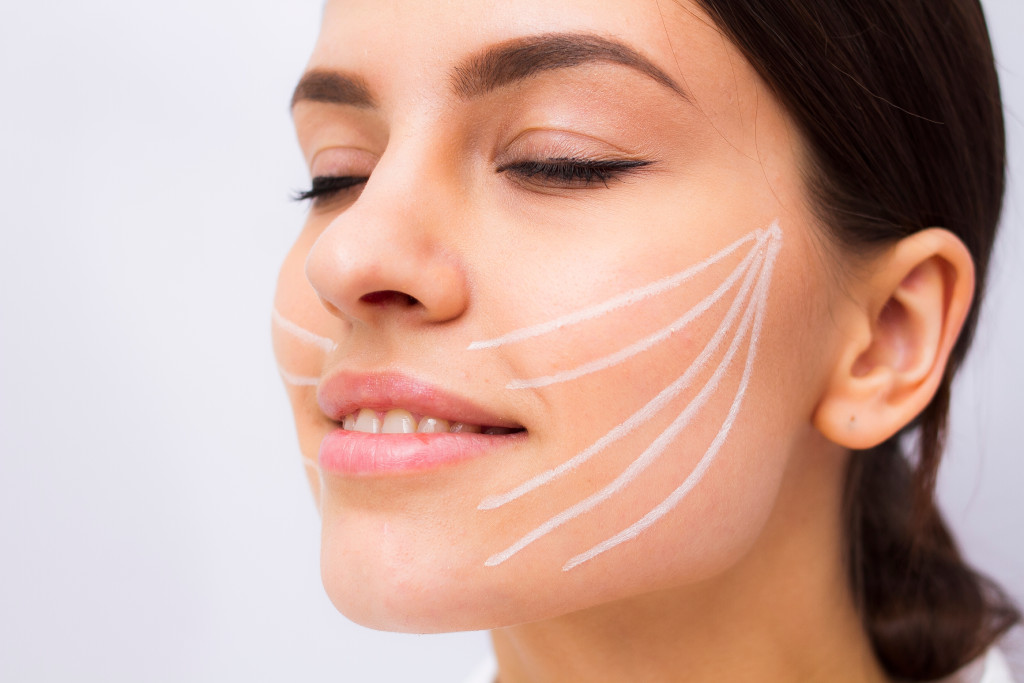Today, people are more inclusive when it comes to body positivity, redefining standards of beauty as unnecessary and outdated. This is likely due to the heightened awareness of mental and physical health concerns that come with judgment, as well as an attempt to reduce the repercussions of an evermore digital and commercialized world.
However, despite attempts to remove the control of fashion companies over their consumers, the current standards of beauty found in the body positivity movement continue to be commercialized.
So, when you pick up a magazine, watch bits of media on any platform, or look at the people you pass by on the street, there is a lot to think about regarding fashion. You might find yourself comparing your clothes to theirs, or their skin, or their body type. Even though there are a lot of conversations about loving your skin for what it is, everyone is entitled to their preferences and definition of what beauty can be. For instance, there are many who still feel like using a commercial laser hair removal machine is aligning with their standard of beauty.
After all, there are different perspectives regarding the abstract idea of beauty. Not everyone is comfortable with growing out the undesired curls on their body, so this is perfectly normal. Besides, there are not a lot of people that can agree regarding the definition of beauty.
What Defines Beauty
Your perspective of beauty can be completely different for someone from the other side of the world. It can be inspired by nature or symmetry, depending on the definitions assigned to it by your culture. Since the planet is home to a multitude of cultures, it only makes sense to have varying perspectives on what can be considered beautiful.
For example, the Japanese women in the past valued small, dainty feet to the point where they were often tied and pressed into a shoe that was ill-fitting. This custom was considered necessary for them to be viewed as beautiful and ready for marriage. Eventually, the bones in the feet would be broken or deformed. Some people may consider these to be oppressive customs but, on the other hand, the locals will find it to be beautiful.
Ethical relativism is a concept that acknowledges differences in culture and the value that that culture assigns to different aspects of life. It understands that people in various parts of the world have their own ethical perspectives. In the same way, beauty is seen through varying lens, depending on what the respective cultures of individuals tend to assign the value of beauty.
Carrying The Banner

Many men and women still push for the inclusivity in marketing campaigns because these often reflect the level of acceptance that a community will allow. When people are exposed to various identities through media, it creates an awareness that could lead to acceptance. This is probably why people were really excited to find advertising that showcased different skin colors, ethnicities, or body types- it was a sign that they were being seen. It asserted their existence and prevalence within a community.
The disadvantage here is when the intention to be inclusive tends to become extreme, to the extent where a new group becomes marginalized. It is important for activists to be mindful about their level of acceptance, and the kind of inclusivity that they are fighting for.
Preferences In And For Self-Love
Similar to how beauty is defined in different ways, the individual preference for self-love also tends to vary. Some people prefer to be more pale, while others like to be tanned, for instance. If people truly want to be inclusive, respect for one another’s preferences is crucial.
Everyone enjoys a certain level of natural self-care, while some consider self-love as purchasing skin care products. At the same time, there are people who want to dress exactly the same as the models they see in magazines or on social media. Conversely, others prefer to be their own trendsetter, wearing clothes that seem to break the canon. In any case, acceptance and representation matters.
Although there are modern perspectives on body positivity and beauty, the traditional perspectives of the aforementioned can’t be ignored. Everyone is entitled to their own opinions and, in turn, their perception of what can be considered as beautiful. Traditional forms of beauty may come from a long, hazy past but these ideals are also very personal. Reminding each other about the great diversity in culture can lead to a less exclusive attempt at inclusivity.
